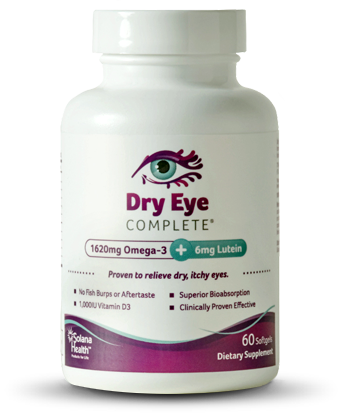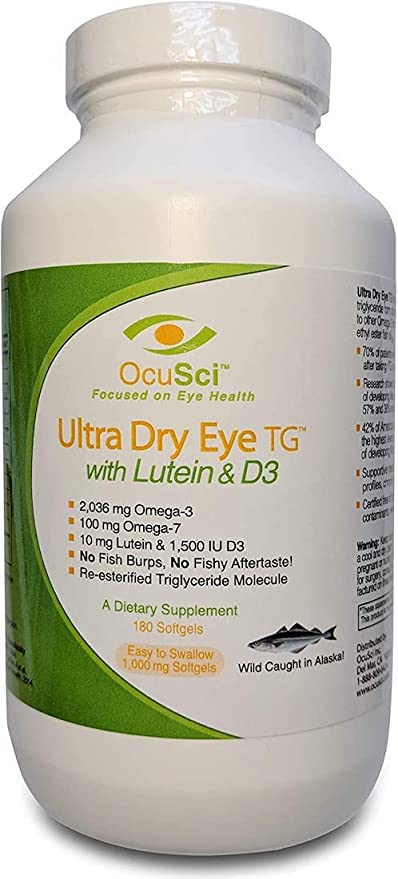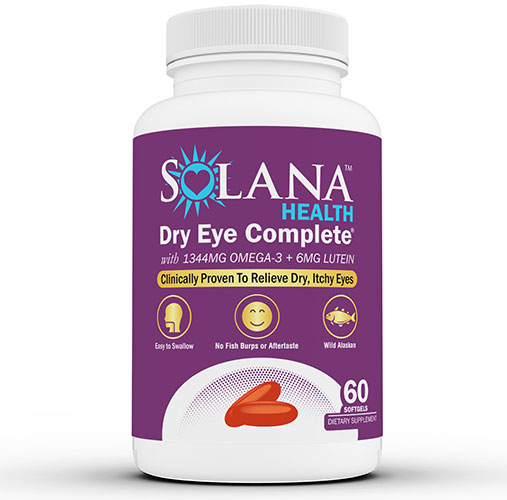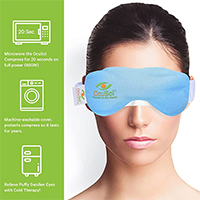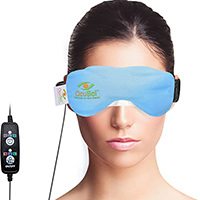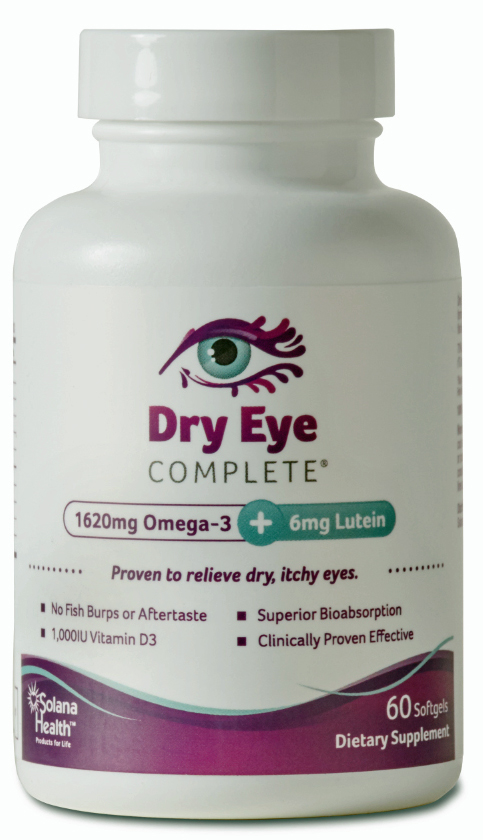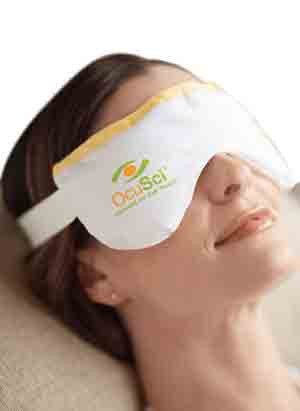Most of the time, when your eyes are itchy, you are suffering from either conjunctivitis or from an allergy. Conjunctivitis is very common in adults, although it can happen at any age. It can also be either acute or chronic and it may come with other symptoms such as blurred vision or swollen eyelids.
Allergic Conjunctivitis
Two forms of allergic conjunctivitis exist:
- Season allergic conjunctivitis – You will generally experience this during the spring and fall seasons. It is caused by the various allergens in the air, like pollen, grass and weeds.
- Perennial allergic conjunctivitis – This can happen at any time during the year and is caused by allergies to things like pet dander, dust, mold and other household allergens.
Not all dry, itchy eyes are caused by allergic conjunctivitis, however. It could also be blepharitis or dry eye syndrome (DES), as well as a host of other conditions. This is why you should always contact a physician if you experience these symptoms, particularly if you are not aware of having any allergies yourself.
Red and Irritated Eyes
If your eyes are dry and itchy, as well as appearing bloodshot or red, you may have experienced trauma, broken blood vessels, allergies, inflammation, or an infection. If the sclera, which is the white of your eye, looks pink or red, the following conditions may be present:
- Pink eye
Pink eye is common in children, but it can also occur in adults. It is a form of conjunctivitis and usually comes with watering, swelling, eye discharge, stinging, burning and itching. Pink eye can be contagious, which you will know if it starts in one eye and then appears in the other as well. Allergic conjunctivitis, as described above, is not contagious. However, since other forms are, you must seek treatment to avoid the rest of your family becoming infected as well. Do not rub your eyes and wash your hands as often as possible. You can apply a cool, clean compress to your eyes for relief.
- Broken blood vessels
The white of your eye is covered with tiny blood vessels. When you use your eyes, or when you rub them, these vessels can break. Your sclera will have a bright red appearance. It looks very scary, but it is generally a harmless condition. In fact, it is not classed as an emergency and will generally go away on its own. However, if it does not seem to get any better, or if it seems to get worse, do have it checked by a physician.
- Trauma to the eye
If you have been hit in the eye or in the nose, the eye can be affected as well. If you were actually hit in the eye itself, you have to get it check out, as you may have suffered a detached retina or corneal abrasion. A detached retina is particularly dangerous and can lead to permanent loss of vision. As soon as the trauma has occurred, you should put a very cold compress on the affected area. Make sure not to rub your eye, and seek medical attention straight away.
Allergies
In 99% of cases, itchy eyes are caused by allergies. You can generally find relief from these by using eye drops. However, try to avoid decongestant eye drops as they can be addictive. Instead, opt for preservative free brands, so that you don’t make the situation worse. Take your contact lenses out if you are wearing them, and apply a cold compress for some immediate relief. If the itching is really severe, you may need some more help. You may be prescribed stronger eye drops, or you could try antihistamines, either over the counter or prescription.
If you notice inflammation and redness, you may be suffering from blepharitis. While this is also not a medical emergency, it will need treatment. Hence, you will need to seek medical attention.
Problems Associated with Itchy Eyes
Most of the time, if you have itchy eyes, you will also have a number of other symptoms, including:
- Redness
- Watery eyes
- Blurred or otherwise impaired vision
- Swelling of the eyelids
- Difficulty in opening your eyes
- Wheezing, nasal congestion, and difficulty in breathing
- Runny nose
- Sneezing
The above symptoms are all also associated with allergies, as well as with the common cold. When an allergy occurs, however, your body will release histamines, and these affect the eyes. The more you rub your eyes, the worse it will get. This is because more histamines are released when you rub your eyes. Furthermore, there is a chance that you will actually damage your eyes as you rub them, and that will only make things worse.
If you experience blepharitis, which is the second most common cause of dry, itchy, and irritated eyes, you will usually also notice your eyes feel scaly. You may also start to lose your eyelashes, and these may grow back the wrong way, which is known as trichiasis, and this further irritates the eye.
When to Call a Doctor
If you know that you suffer from allergies, then it is most likely that this is also causing the irritation to your eyes. If you don’t know that you suffer from allergies, it is possible that you have only recently developed them, as this can happen with age. However, it is still best to have things checked out, just to be on the safe side.
An ophthalmologist will look at your eyes, but if you believe allergies are at play, you may need a dermatologist or an allergist. Between them, they will perform a number of tests, including:
- A blood test to measure allergies
- A skin test to measure allergies
- A physical examination
- A food allergy test
Additionally, they will look at your eyes to see if there are any other symptoms present. You will also be asked a number of questions about your medical history, the symptoms you experience, how long you have experienced them, and so on. It is important that you answer those questions to the best of your knowledge.
How to Prevent Itchy Eyes
If you know your itchy eyes are caused by allergies, the only thing you can do is avoid allergens. This is not always possible, however. Hence, you need to speak to your health care provider about taking anti-allergen drugs, such as antihistamines and decongestants. You also need to make sure that you report any changes in symptoms. If you wear contact lenses, there is a chance that you have an allergy to the fluid. You may want to try changing fluids, therefore, as well as replacing the batch of contacts you are currently wearing.
Some things you can do indoors include:
- Regularly vacuum so that the pet dander and dust are reduced.
- Close your windows so that outdoor allergens cannot enter your property.
- Make sure your pets do not stay in your bedroom or in any other room where you spend a lot of time.
- Regularly run your air conditioner, so that allergens are reduced. Make sure that your air ducts and air filters are clean, however.
- Don’t smoke in poorly ventilated rooms.
There are also some things that you can do to avoid outdoor allergens:
- Listen to the pollen report on the weather news.
- Avoid going outside between 5am and 10am, which is when the amount of pollen is highest.
- Use a dryer to dry your clothes instead of putting them on the washing line. Allergens will stick to your fabric, causing allergic reactions.
- Wear gloves and a face mask if you want to do any gardening.
- Shower straight after being outside so that the pollen and other allergens are removed from your body and particularly your hair.
It isn’t possible to completely avoid all allergens, unfortunately, but you can do quite a few things to limit your exposure and limit the effect allergens have on your eyes. Once again, make sure that you do not rub your eyes, as this will only make things worse.
Treatment and Relief
There are a number of treatment options out there for dry, itchy eyes:
- Over the counter antihistamines to help you fight allergies.
- Eye drops to keep your eyes moist and capable of flushing out irritants.
- Prescription medication to fight allergies or to treat an underlying condition causing your eye discomfort.
Remember that all medication, including those available without prescription, can have side effects. Drowsiness is particularly common with antihistamines, so that is something to be aware of if you have to drive or operate machinery. Additionally, you need to make sure that there are no interactions with any other medications you are taking.
Things to Ask About
If you do need to see a physician, there may be a few questions you want answering yourself. One of the main questions people have is how long their eyes will feel that way. Unfortunately, there is no clear answer to this, as it depends on the cause of the itchiness, the allergies they suffer from, the season, and the medication they are prescribed. Other common questions that you may want to ask your physician include:
- Should you go see an allergist?
- What is the cause of your allergies?
- What tests will be done to determine your allergies?
- What home remedies work to alleviate the symptoms of your eye discomfort?
- Which over the counter products are most recommended for your personal situation?
- Do you need prescription medication to deal with the symptoms?
- Could there be an underlying health condition that is causing the eye discomfort you are experiencing?
Resources and References:
Blepharitis – Information on the causes and treatment of blepharitis. (All About Vision)
Eye Allergy – Information on the causes, management and treatment of eye allergies. (American College of Allergy, Asthma & Immunology)

